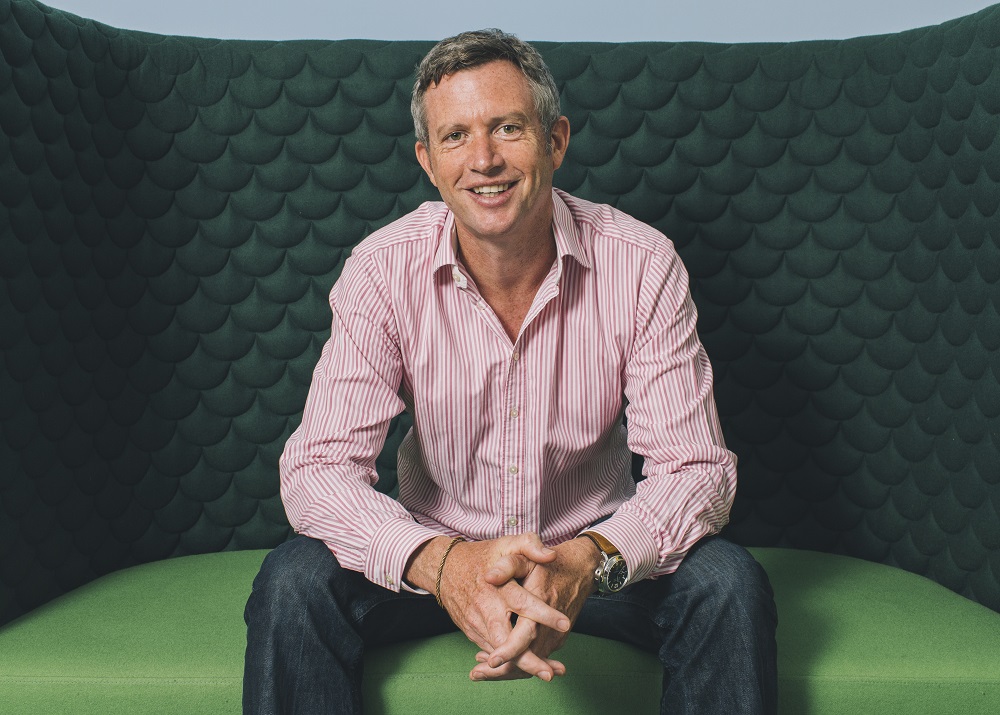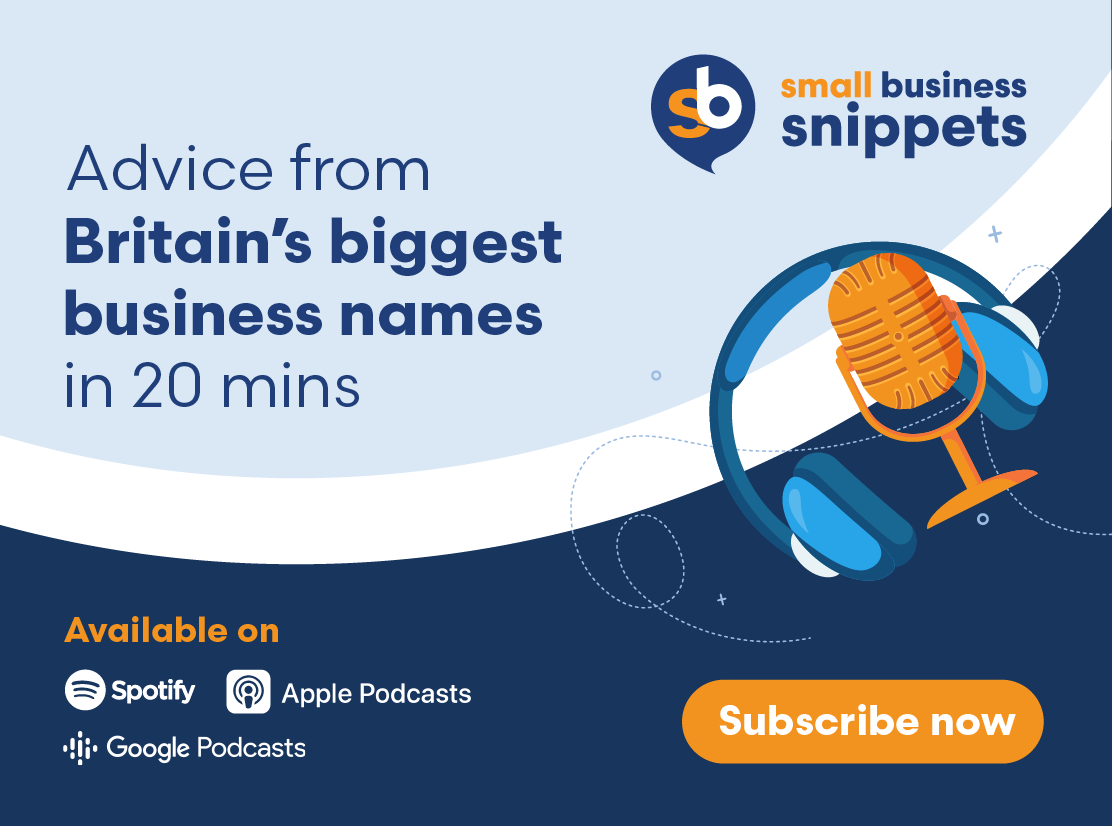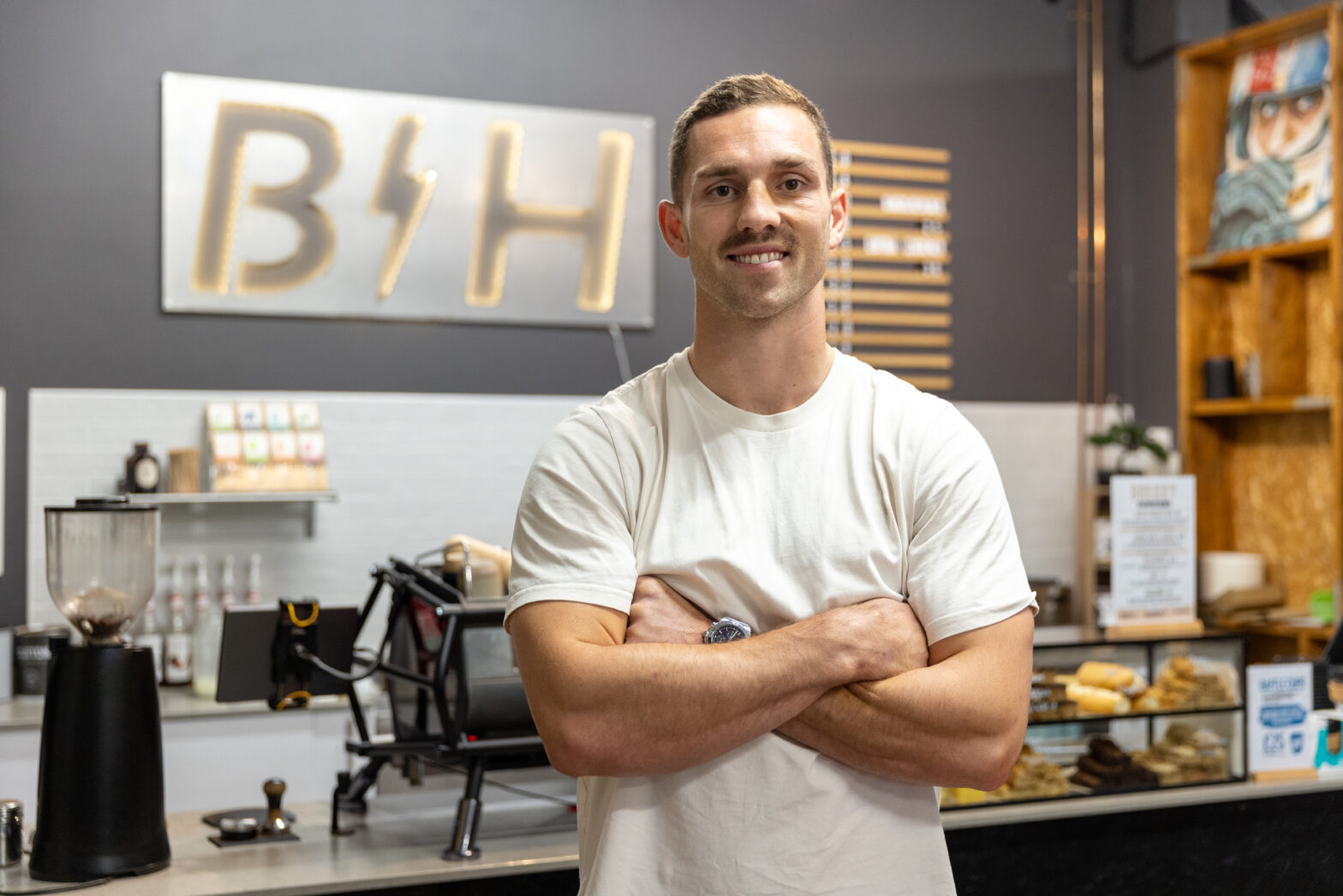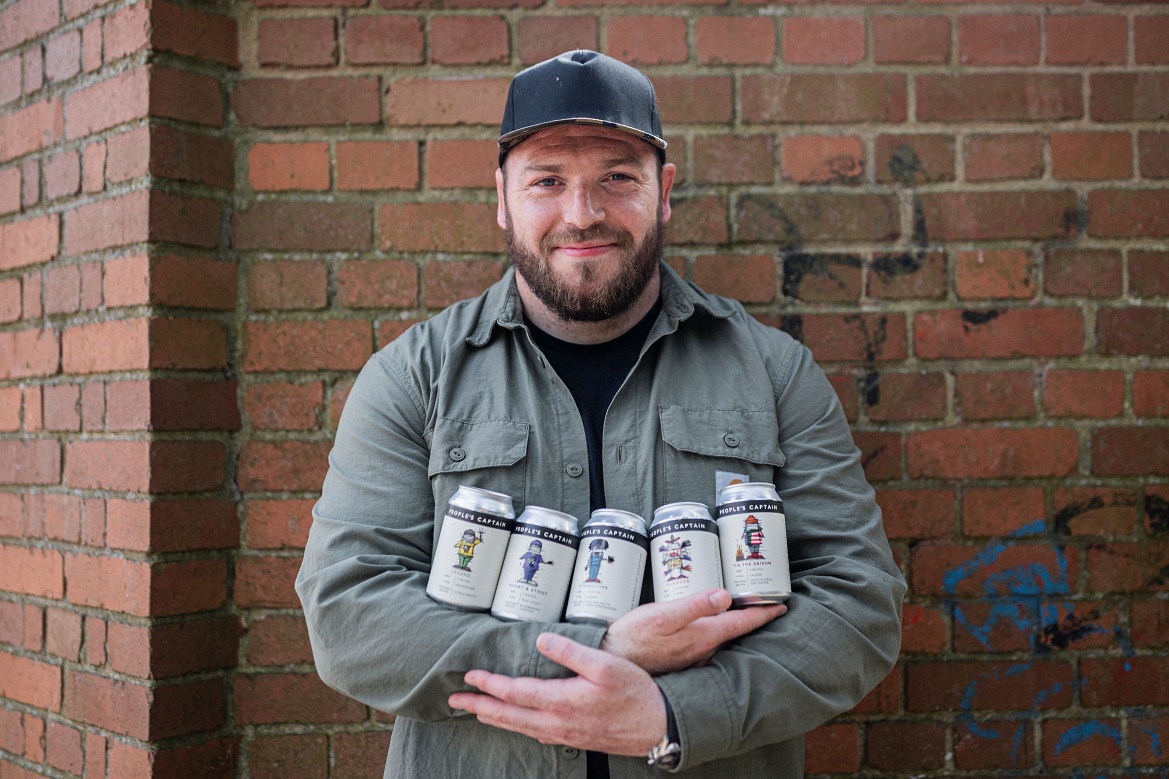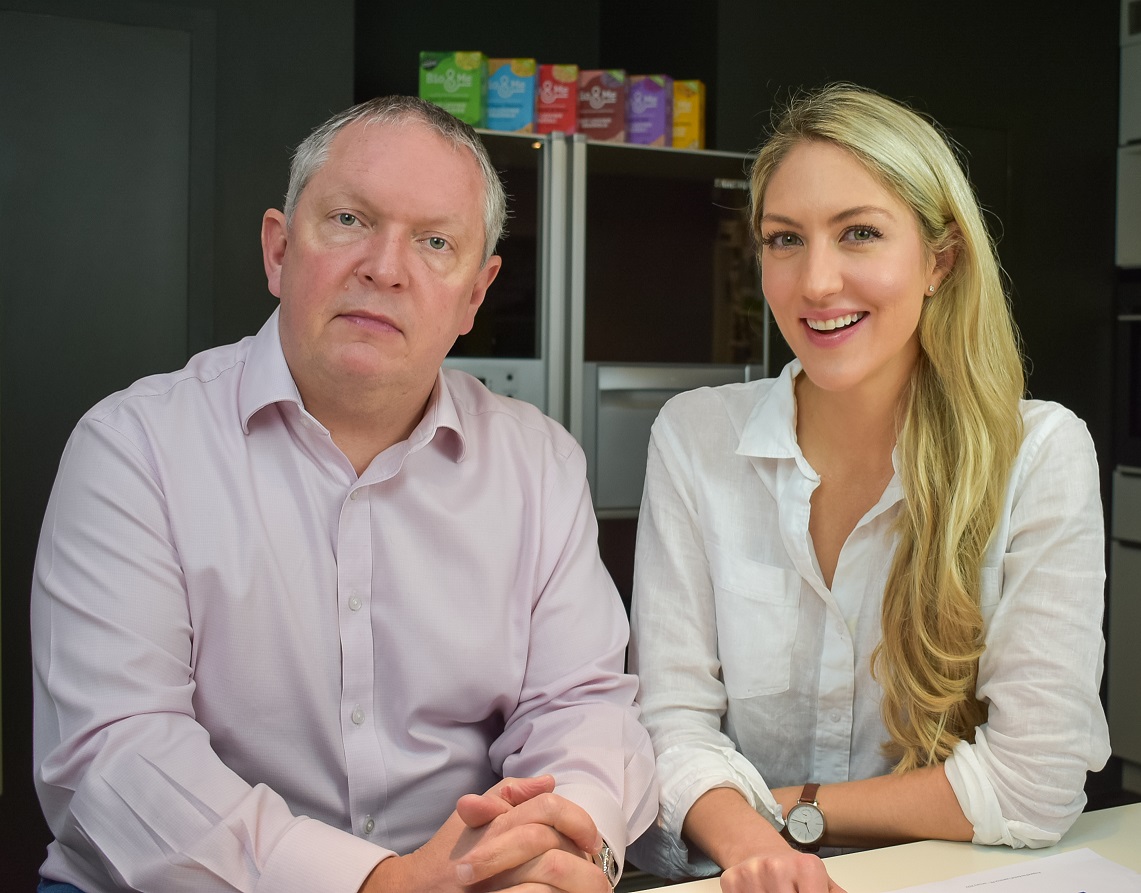Welcome to Small Business Snippets, the podcast from SmallBusiness.co.uk. Today’s guest is Paul Lindley – author, campaigner and founder of Ella’s Kitchen.
We talk about relearning the valuable business skills you had as a toddler and why you should consider becoming B Corporation certified.
Listen to it in the media player below.
Alternatively, you can watch the new video version of the podcast!
You can also catch our episodes with:
- Managing director of Brompton Bikes, Will Butler-Adams
- Businessman and author, Gerald Ratner
- Entrepreneur and TV presenter, Trinny Woodall
- Pub owner and bartender on Channel 4’s First Dates, Merlin Griffiths
- Founder and chairman of Pimlico (formerly Pimlico Plumbers), Charlie Mullins
- Retail expert and former Dragon, Theo Paphitis
- Author and boardroom expert, John Tusa
- Digital guru and investor, Sherry Coutu
- Entrepreneur and former Dragon, Rachel Elnaugh
- Businesswoman and Dragon, Deborah Meaden
- Entrepreneur and The Apprentice 2005 candidate, Tim Campbell
- Gousto CEO, Timo Boldt
- Entrepreneur and The Apprentice 2018 candidate, Jackie Fast
- Investor and former Dragon, Piers Linney
- Investment fund manager, Nicola Horlick
- Supermodel turned entrepreneur, Caprice
We’ve got podcast episodes from the first series looking at:
- How one business owner’s mental breakdown caused her to see trolls from her past
- How one entrepreneur hired a videographer to track their every move and build their business brand
- How funding a business led one entrepreneur to stress-related alopecia
- One entrepreneur’s first professional public speaking engagement
- Adapting to UK life and learning English before starting a business
- Securing seed funding
- Finding the perfect head of customer care
- Reaching a £1 million annual rate of return
- Boosting client numbers from 30 to 850
- Starting a brand new business from scratch
To find out more about Small Business Snippets, you can download the trailer.
If you want to listen to the podcast elsewhere, it’s available on Apple Podcasts, Google Podcasts, SoundCloud and Spotify. Watch the new video versions and subscribe over at our YouTube channel. It’d also be great if you could leave us a review.
Remember to like us on Facebook @SmallBusinessExperts and follow us on Twitter @smallbusinessuk, all lower case.
Check out SmallBusiness.co.uk for articles on exit strategies and making your business greener. Like us on Facebook @SmallBusinessExperts and on Twitter @smallbusinessuk. Don’t forget to subscribe!
Want to read Paul Lindley’s interview instead?
Hello and welcome to Small Business Snippets, the podcast from SmallBusiness.co.uk. I’m your host, Anna Jordan.
Today we have Paul Lindley, author, campaigner and founder of Ella’s Kitchen.
He launched the company in 2006 after being dissatisfied with a lack of healthy, tasty and convenient food for children. He sold Ella’s Kitchen to Hain Celestial in 2013, stepping away from the business completely in 2018 to focus on his social campaigning. In the same year, he was appointed chair of the London Child Obesity Taskforce by Mayor of London, Sadiq Khan
These days, Paul is the chair of Robert F Kennedy Human Rights UK and a trustee of Sesame Workshop, the creators of Sesame Street. He also sits on the board of social enterprise, Toast Ale.
We’ll be discussing what it takes to run an ethical business and how you can relearn the unexpected business skills you had as a toddler.
Anna: Hi, Paul.
Paul: Hi Anna, how are you?
Anna: I’m alright, thank you. How are you?
Paul: Good. I’m feeling I’m feeling quite positive. Actually. I had my Covid jab this morning. My arm’s sore, but it’s an excuse to think positively about the future.
Anna: Yeah, yeah.
Paul: It is incredible what they’ve done. Over the last six months as a business or like the last year, but as a business, to take all that innovation through to get 25 million people within, what, 12 weeks?
Anna: I know, I l know.
Paul: It’s been an awful year, in so many ways. But you know, we’ve got a lot to look forward, we’ve got to pick on the things we’ve learned, we’ve got to celebrate some of the pivoting that businesses have done the innovation that’s come around the resilience, the community that we’ve built over this time and sort of build back better, but what suffering we’ve had this last year.
Okay, so let’s just jump straight in. In your book, Little Wins, you talk about the business skills that we have as a toddler that we unlearn. So, what kind of business skills are you referring to? What kind of practical exercises can business owners do to relearn these skills?
Paul: Thank you for coming in straight away with Little Wins – it’s such a passion of mine. The book came out of my experience of building Ella’s Kitchen. Inside of me – in this grey haired 50- something-year-old – there’s a little boy.
I think that was the key within Ella’s Kitchen, that we had this childlike mindset of that we could do stuff, we could have an imagination and a free-thinking that would make me make the business work when everyone was saying that the odds are really stacked against you. So, I took that and I took the heart of our hero, our core consumer, and thought through the skills that toddlers have, and how we use them in our company. Then I took a step back and thought, ‘Well, everyone was a toddler.’ Everyone can unlock their personal potential as an adult or a business owner – not by learning new skills, but by relearning and rediscovering those old ones of imagination and free-thinking and self-confidence. And a whole nine of them that I put in my book.
This is to simplify this complicated life that we’ve got to allow us to make decisions in business or in our personal lives, like toddlers do with much less information, and move forward with positivity and a ‘can do’ mindset. So really, it’s about that idea that you can become the best person of the person you once were, the best version of a person that you want to work by having this type of mindset. You can bring that to your personal life, you can bring that to business. The sorts of things that I talk about are the fact that toddlers have such confidence, such creativity – they dive right into things and never give up, they get noticed. They’re honest with each other, they show their feelings, they have fun, they involve others, all sorts of things that, to be honest, by the time we’re all around four or five years old, we must think, ‘Life’s great, I’m only four or five, and I’ve learned all these skills, I’m going to live to 85. What more is there to come?’
The truth is that whether asked how our society works, whether it’s parenting or education, or the corporate system, narrows our vision, and it sort of asks us to conform. If you’re a small business owner, if you’re an entrepreneur, you want you and your team not to conform, you want you and your team to imagine things that could be possible, and to go and do them to have the wherewithal to do it to go and do them.
It’s really all about the mindset of the corporation, the culture, the mindset of the culture of the business. You as the business owner, you as the senior person in that accountancy firm, you’ve got the opportunity to set that.
I think it’s by setting up systems and processes and recruiting the right people that have the mindset so that you can be brave and curious – both of those things unnecessarily because what is true for any business, or any of us in this world right now: if we do nothing, we keep the status quo, we’ll move backwards. The world is changing at such a rapid pace, we have to innovate, we have to try things that may or may not work. We’ve got to build the confidence and the bravery and the curiosity to experiment and find that way through because that gives us the edge. That’s really cultural, I think. You can set your corporate reward system to set bonuses wholly on financial performance, wholly on growing five per cent from last year. We all know we’ve yet, well, maybe we should have set a five-year bonus that doesn’t expect us to grow in any given year, because we’re trying things that are going to really deliver in three-or-four-years’ time.
We’re happy to make mistakes and get it wrong. As long as we can iterate and we can learn, we can adapt, and we can build something from those trials and errors, then we have a better business over a five-year period. So how and I would advocate that we certainly didn’t tell Ella’s Kitchen businesses I’m involved with now, though, is build a bonus scheme based on one year wholly on financial performance.
Obviously, you need a successful sustainable business that makes profits and that interest should be tied to bonuses. But living the values of the reason why your company exists, I think, should be embedded within the way people are remunerated and motivated and rewarded for contributing to their company.
Setting your values, for example, at Ella’s Kitchen, we had five. One of them was to be childlike. So that might be okay for a consumer brand that’s got a kind of fun personality for the marketing people to deliver. But if you’re the payroll person or the accounts receivable person, how do you interpret being childlike into your work? One of them one year brought ring and renamed the remittance advices to be ‘from my piggy bank to yours’. That was the habit, they reworded it, that was the small thing that they did. But it brought a smile to the person who’s in the business that they were dealing with the parent and had to come from, and that person may have been a parent or may not may have talked to somebody that was a parent or may not. It was the way that, just a tiny little language change, we could get people talking about our business. And that was a real ‘thinking like a child’ aspect. That person got that part of their bonus based on that. So that’s one thing that’s really around the culture and the systems that you set out.
Ultimately, you want to employ people with an open mindset who do believe in the reason you set up a business and believe that you can get there. Because if you’re a small business, it’s probably against the odds that you will get there, and unless you stack yourself with people who believe it and will go out of their way to do it because they motivate, you inspire them. They know what the mission of the business is, you know what the business plan is, what it takes to get there – and everyone works on that together to deliver and that’s where this idea of thinking like a toddler can really be impactful.
Right. So, I’m going to go from starting a business, right through to exit. One of the key decisions, if you’re looking to exit, is who you’re going to pass your business on to, and are they going to carry on as you would see fit. I guess with Ella’s Kitchen, because your vision and your values are so deeply ingrained in the brand, how did you go about making the decision of finding the right successor for the business?
Paul: Well, when you sell your business, it’s hugely emotional. And it’s very personal. So, my experience may be very different to others. Some people want to sell a business, walk away, don’t really care what happens. They want the money in the bank, and they created something from nothing and that was their job.
I named my business after my daughter. I have, as you said, very personally set the vision and the values of how that the first number of years went for Ella’s – it does matter to me still, what becomes of Ella’s and that it maintains those values.
There are two things:
- Who do you sell to?
- Who succeeds you as the chief executive?
So, who do you sell to? I sort of thought of this as a horse race in a way and there were three jumps to get over and each of them was associated with the word ‘value’.
The first jump to get over, and if a potential acquirer couldn’t get over that we wouldn’t talk to them, was values. Do they see the world in the same way as we see it? Will they support and protect the way we’ve seen the world and the way our business has been successful, because we’ve seen the world that way? Will they tinker with it? If they tinker with it, we’ll tell them now it’ll fail. And don’t – let’s stop the conversation.
But if they do see the world in the same way, if they believe the why of why we set ours up and why it’s successful, and they give us the confidence that they won’t tinker with that, then we’re over that first hump. The second is value – we’ve all worked really hard to create something of value, you need to pay as the price that that value should deliver – there’s obviously an overlap between the two. If there’s overlap, great, we can continue the race. If there isn’t an overlap, we need to walk away because that’s just not recognised. Then we get over that second hurdle.
The final fence is really around added value. In my view, it’s sort of what added value are they going to do to this business to make it better than we could do without them? Maybe they’ll open up more markets, maybe they’ll have their own factory, but we can be more efficient and better supply chains, lots of reasons why.
We can start to get into the deal and the labels. We were very careful to go through that when we sold. Then it was okay – I stayed on board for another year, I ran that business, and Ella’s Kitchen for $300m business for a year, delivered what we promised and then wanted to stand back. And then it was, well, who is going to deliver and keep the heartbeat of this company going? I’m a big believer in promoting and rewarding from within a company with sort of developing talent and making people feel as though they can get to the top. We have some excellent leaders within the business.
Third, the guy that took over had been in the business three or four years, was the sales director, seven years later is still the CEO, a guy called Mark Cuddigan. He is just awesome. He has the, you know, sometimes I joke that perhaps Mark is the best leader that Ella’s has had. But he has taken that business, keeping its heart, keeping its soul, keeping that mission and that vision as a feeling rather than something in the head and he delivered it with his own handprint with a team that has gone on and expanded. The value, the sort of impacts that the business has, both in terms of shareholder return and stakeholder return and delivering a mission to help children live better lives.
I think you’ve got to do your homework for who that person is, if you care what happens next. I think it’s absolutely based on values and how people see the world. And we looked for five leadership skills, really. I always do this with any sort of recruitment, no matter what the level. If they aspire to be a leader, if we want them to be able to inspire their team going forward. And those are about emotional maturity, because it is going to be a roller coaster ride. You’ve got to take the rough with the smooth and you’ve got to be mature about that. It’s about a drive for improvement all the time, never been satisfied that where you are is where you’re going to get to, driving your processes, your systems, your products, culture, everything forward all the time constantly. It’s about effective communication. So many mistakes in business happen because we don’t hear each other properly –and we don’t take the time to talk to each other or listen to each other. That effective constant communication is absolutely vital.
The final thing is that rather ability to see in the wider context of where our business sits in the industry, where the industry sits in society and what we can control and what we can’t. That kind of leads to the fact that you don’t have to actually win every battle, you want to win the war in the end if you achieve your vision. You can collaborate with your competitors in certain areas, you can do things together that will improve not only both of your businesses, but also the consumer or the client’s life at the end of it by working together sometimes, or working with your suppliers or your customers. So, those are the five things and Mark excels at all of those.
I would say the learning that I’ve seen from others, and which I was determined not to do, was my time was over. If I was going to stand back, I’m standing back. I’m there at his ear if he wants advice and he’s counselled to device in the past in attendance tenders. But don’t be a backseat driver – let them make the mistakes or the failures that they need to make to understand how they can get to success. Be a counsel.
I think that the two most proud things I have about the Ella’s Kitchen experience happened after I ceased to be CEO. The first one is that it became a B Corporation. Mark and I worked with the shareholder and with the team to make sure that we’d qualify for that. I’m incredibly proud that Ella’s Kitchen was one of the first B Corporations in this country. I think the B Corp movement is an incredible movement to nudge forward the way we do business to a much better place.
The second thing is, I think for the last five years, Ella’s Kitchen has been voted one of the UK’s Best Companies to Work For. And that’s Mark, inspiring his team to really enjoy working there, really feel as though they’re achieving something, being rewarded however which way that is for that contribution.
We’ve talked a lot about inside the organisation and what’s effective. And of course, you’re an advocate of B Corp. A lot of small businesses today are wanting to show customers their ethics and their ethical credentials. How would you suggest small businesses go about proving how ethical they are?
Paul: So what B corporations are, they’re businesses that meet the highest standards of verified social and environmental performance. They set themselves up for public transparency and legal accountability to deliver on more than the purpose of making money. And they hold themselves accountable for that.
What the process is, you have to do this survey, where it’s really hard to pass, but you only need 40 per cent to pass. But it’s hard to get to that point, since we’ve looked at all aspects of your business – governance, the supply chains, the people, finance, loads of things. You have to do things to make sure that you’ll have a structurally sustainable business, then once you pass that you’ve got to go into your constitution of your company and change it effectively to say we’re not just about shareholder return and maximising that, we’re about stakeholder return and optimising that, we care about the environment and the communities that we draw teams from and we sell to.
Each of those things are as important as the profit that we make. Think about it, the business that we operate is in the ecosystem of all sorts of other things that are happening in the world. You want a healthy interdependence between communities, the planet, and business and profit that works together.
So I can give you statistics to show that B corporations perform better financially over the long term than non B corporations, I can show you that cost base is more efficient, because people stay longer because they see and believe in your mission and it’s verified, and you know where you’re going. What it brings it validates your reason, your why, your mission – it tells your staff and your potential staff that you are committed to it and Ella’s Kitchen and some of the new businesses I’m involved with, we’ve had staff applying, team people applying to the roles because it’s a B Corporation.
It protects you versus your shareholders, if you like in that you can create more environmentally friendly packaging, but it costs a penny more, you can’t be fired for by that because the environmental impact is as important to the profitability of the company. And you create you join this network of wonderful business leaders that really tried to use business as a force for good.
I’m a huge advocate of that – it puts pressure on yourselves to live, to walk the walk of what you’re talking. But it’s ingrained and it helps you think through the social, the environmental and governance aspects to make your business not only the best in the world, but the best for the world as well. My hope is the future of business. And by looking at the first five years of B Corporation in this country, which we’ve just passed our fifth birthday, it’s growing, growing like nowhere else in the world. And those businesses are performing better with more and more loyal and engaged staff.
Anna: That’s interesting, because I would have thought it’s because consumers are becoming savvier, that it would be more of a draw for them. But I never thought that would attract employees who would be looking for the B Corp certificate.
Paul: I would just say that back to – it’s people, again, consumers and employees are people wanting to find things that live what ethics and values they have in their head. If that’s buying something because it’s got a little knitted bauble on the top of the smoothie that going to get towards grannies versus one that isn’t maybe if they employee wants to work for somebody that isn’t just about making money for the shareholders, but it’s also helping society where we’ve got a problem with loneliness with older people, that person’s happy. They’re just people an answer that I really think business.
I don’t think business is really about economics, although it has to make money. It’s about psychology. It’s about understanding why somebody is going to change their behaviour because you exist, and that behaviour is going to improve their lives, you’re going to be able to make some sustainable returns out of it. And we all want to live in a better world because we feel really good when you create a business that does that every one of your team well, and the consumer will as well, because we’re all just people.
Anna: Well, I can’t follow that, so I’ll wrap up there. But thank you ever so much for coming on the podcast, Paul. It’s been great.
Paul: Absolutely welcome, Anna, and I’m delighted to share some things that I hope can help others.
You can find out more about Paul and his book ‘Little Wins: The Huge Power of Thinking Like a Toddler’, at paullindley.uk. You can also visit smallbusiness.co.uk for more articles on exit strategies and making your business greener. Remember to like us on Facebook at SmallBusinessExperts, follow us on Twitter @smallbusinessuk (all lowercase) and subscribe to our YouTube channel, linked in the description. Until next time, thank you for listening.
